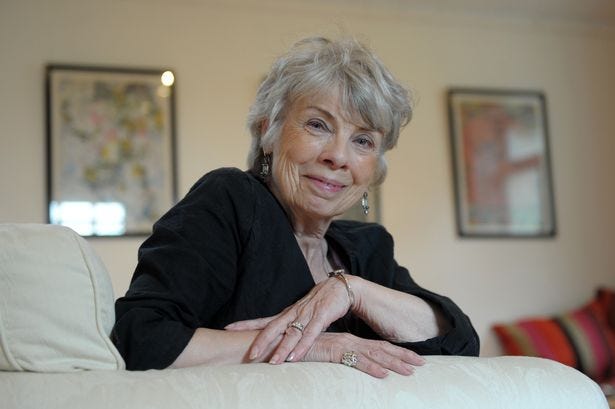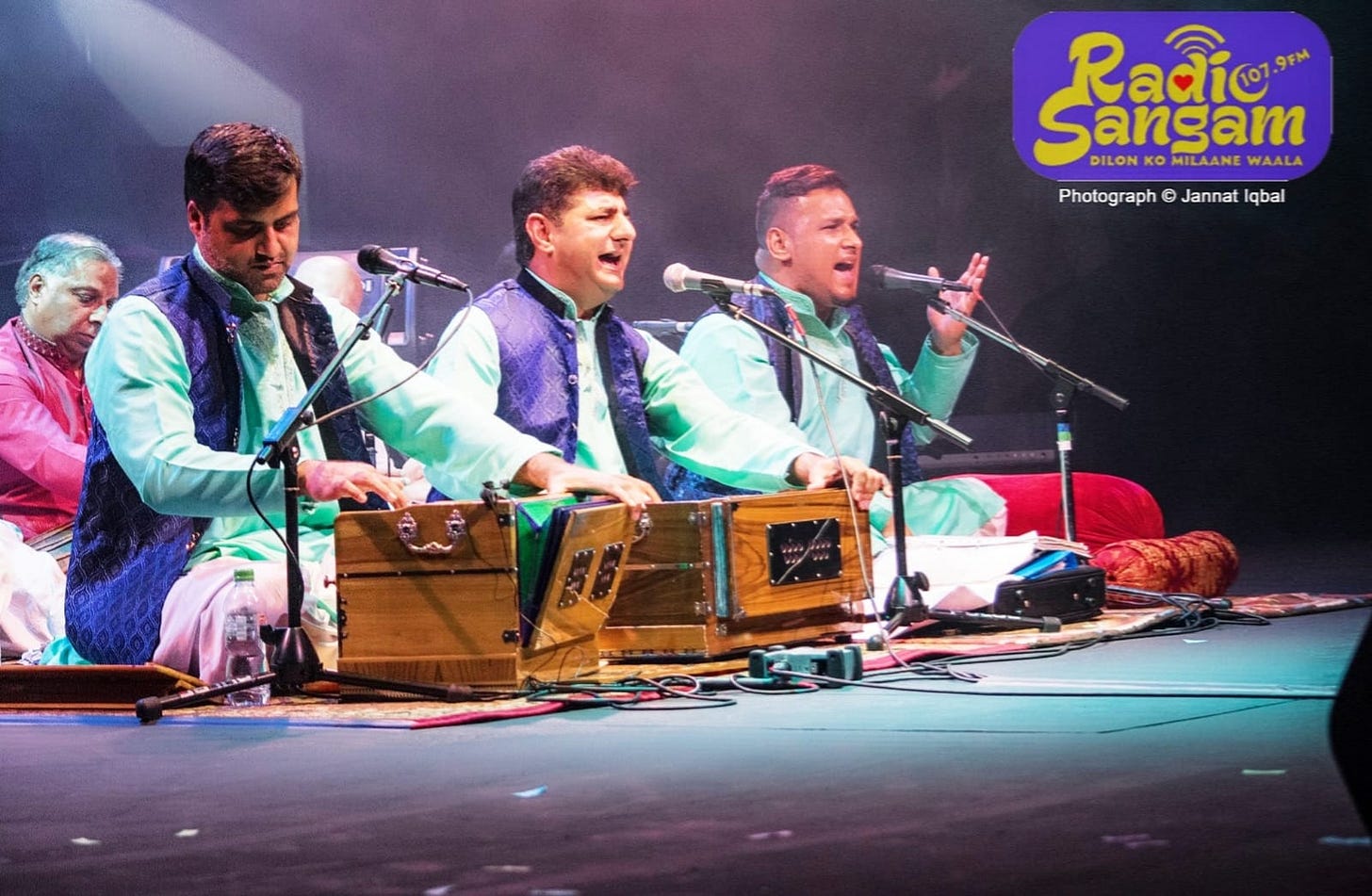The Lit Fest Newsletter
In this edition… Derby Book Festival goes live, James Holland from the Chalke Valley History Festival interviewed, Chrys Salt MBE explains how BIG LIT has coped with the pandemic, there is a new festival alert and poets take to the street in Winchester. Thanks for reading (and apologies for any typos). Over 100 UK literary festivals are now subscribed to BookAmp.
With lockdown easing in a couple of weeks time it looks like Derby is going to be the first out of the stocks with a festival mainly composed of live events. They are also offering livestreaming tickets at 50% of the in-person price and a digital pass for £25 that allows access to the events both livestreamed (and watch later). Alongside traditional theatre venues they also have organised family days out in parks and a number of walks. We wish them ever success!
(photo credit: Tim Abell)
James Holland Interview
I am delighted to bring you this interview with author James Holland who is also the programme director and chair of the Chalke Valley History Festival. Thanks to Alex Hippisley-Cox for organising the interview.
The growth of the Chalke Valley over the last ten years is one of the most impressive in the whole literary festival sector. Has the growth been steady each year or have there been specific points where a decision was taken to try and take a leap forward?
Our first year was really a very small affair and set up initially to raise funds for the local cricket club – just twelve literary history events plus dinner and drink. We went up to sixty events the following year, in 2012, and, crucially, with a large living history encampment too and an expanded site. Fortunately, that went well, so we doubled again in 2013 and by our fourth year had a full week as well as an increased size integrated Festival for Schools. We’ve been at that scale ever since, but I’m glad to say the graph has since risen steadily, albeit not as dramatically is in the first few years. We consciously decided organic and steady growth was the right approach.
Having a site specific festival brings a greater logistical challenge - water, electricity, fencing, sound, toilets, car parks etc. But what have been the benefits?
We did consider moving to an absolutely beautiful country house and park some years ago but we felt it was better to keep a neutral but historically rich site where the suspension of disbelief is a little bit easier to maintain. Hairy Vikings don’t quite have the same impact in front of a Georgian mansion. Our current site is at the heart of the Chalke Valley, is stunningly beautiful, with rolling chalk downs and coombes and ancient lynchets – of course, building a site for 30,000 people from scratch each year is costly but on a glorious sunny day in June with thousands of people and all that the festival has to offer on display, I never doubt it’s the right place for us to be.
You will often have more than one event running at the same time, is your audience big enough to deal with this or do you try and programme concurrent events so they attract different groups of people?
We have a mass of different things going on at once. At any one time one can watch living history displays and demonstrations, see multiple speakers or watch debates, hear more informal talks as well as mooch and wander around the extensive site. This year we have a very extensive outdoor programme as well as two tents showing more traditional literary festival-style events. I’ve worked out that with a day pass for the Outdoor Programme, people will have a choice of over thirty different scheduled things they can do, see and participate in. But yes, we do have the audience capacity for that.
How important is the schools programme?
Probably the single most important part of the festival. We operate on behalf of the Chalke Valley History Trust, which aims to further the interest and enjoyment of history to all ages but especially to school children. We believe very strongly that history should be compulsory up to GCSE and it bothers us that more and more children are choosing to give it up at fourteen. Normally, we have a three-day Festival for Schools but because of the pandemic, this year we’re filming a mass of content that will be available for free to every single school in the land.
What is your revenue split in % between ticket sales, sponsorship and catering/stalls? Which has been the most challenging to grow?
We make roughly 50% of our revenue from ticket sales. The other half comes from sponsorship and concessions.
How difficult has the last year been?
Well, it’s important to keep things in perspective. A history festival in Wiltshire is pretty small beer in the big scheme of things, especially when more than a 1000,000 are dying of a horrible virus. It’s been challenging but we’ve had incredible support from a wide range of people – our patrons, loyal supporters, an incredibly helpful grant from the Arts Council and thanks to the dedication of our team – all of whom have taken a salary cut – we’ve kept going. The furlough scheme also helped. We think we have enough momentum to put on a slightly smaller – and different – festival than in normal years this coming June.
What is the thing or event that you are most proud of during the festival's history?
A heaving festival on the Saturday with the sun shining is always lovely to see but the single moment that made me feel we were onto something was when an inner-city state school from London got in touch to tell us one of their pupils had been offered a place to read history at Oxford. It was the school’s first ever Oxbridge success and the pupil in question had striven to get a place after visiting the Chalke Valley History Festival for Schools. That was lovely to hear, I’m not going to lie.
Chrys Salt MBE explains how Big Lit in Scotland has adapted in the last year . . . .
“The Bakehouse Community Arts is a small charitable organisation dedicated to poetry and the spoken word. Over 15 years we have given many local writers a chance to read their own work alongside established writers, and provided entertainment in a very rural area of SW Scotland. Folks were hungry for culture, and we soon started to fill the Bakehouse kitchen which has a small stage in the corner, and seats around 50. From this it was a short schlep to expand and the first BIG LIT Festival in Gatehouse of Fleet was born.
Last year should have been BIG LIT’s BIG tenth anniversary, but... well you know the rest! But technology to the rescue! My background in the theatre and as a writer gave access to writers and actors - Liz Lochhead recorded an interview on Zoom to celebrate Edwin Morgan’s Centenary, Olivier Award nominee Annette Badland (of East Enders, Midsomer Murders, Outlander fame etc) created a brilliant performance piece about Gertrude Stein from her London sitting room, while author/performer Alan Bissett delivered a controversial talk about, Rabbie Burns from a sofa near Glasgow. All in all we managed to pull together 12 high status digital events (still available on www.thebakehouse.info) - less than half our usual output, but a reputable Festival nevertheless.
So what did we learn from our digital adventures? Firstly not to expect a massive hit rate for events. The bigger your audience database, the better: only a small percentage log onto events and everyone who is anyone – The Met, The National Theatre et al - are pumping out top quality events in hot competition. Performers with big social media followings had the highest viewing numbers! Filming events ourselves (socially distanced of course) gave us a higher degree of control but we found ourselves on a steep learning curve with regards to technical expertise! Inadequate technology persuaded us to make a successful bid to a Foundation for better quality equipment. We had no control over self-recording events and not everyone has experience or the technical skills to achieve adequate results. We have subsequently accrued best practice self-filming advice to share. It is essential to have someone on the Team with editing software and website expertise as many an inelegant shot can be improved by cunning edits.
This BIG LIT (August 19-22) will be a hybrid Festival – some live, some digital. Meanwhile, The Bakehouse is starting to share its digital output with other not-for- profit festivals. This includes Bakehouse Bites (5 minute shorts), Bakehouse Comps (15 minute composites) and Litflixs, our longer reading sessions. Skills learned at the knee of Covid 19 have filtered through to my own work too. Skookum Jim and the American Dream, a generously funded artist’s film will be available free to Literary and Music Festivals from July 2021 into 2022. Thanks to Creative Scotland, we were able to employ another performer, a composer, a five piece band (recorded in different locations) and a fine artist/film maker, whose skills were mightily enhanced by the digital BIG LIT experience.”
Please contact Chrys direct if you’d like to show her film at your Festival or access The Bakehouse’s digital material. You can contact Chrys - www.chryssalt.com and chrys@chryssalt.com
New Festival Alert! Sangam Festival: A Celebration of South Asian Heritage
It has been some time since we have been able to announce a new festival. Sangam Festival: A Celebration of South Asian Heritage will take place 18 July – 17 August 2021 in Kirklees in Yorkshire this summer, with a mix of venue-based, outdoor and digital events. It is being organised by Huddersfield-based social enterprise Communities Together who also run Radio Sangam.
The Festival will include heritage, arts and cultural events, including talks and trails on the history of textiles and mill workers in the area; workshops exploring family history; art and photography exhibitions; film screenings; dance and music performance from Bollywood brass bands to classical Qawalli inspired by Sufi poetry. Some events will be delivered in partnership with other local festivals, community organisations and educational facilities.
Poet in Winchester
Poet on the High Street is a city-wide poetry residency in Winchester. The poet will work with schools, young people and the community at large to inspire creativity and to animate the city centre with poetry throughout the summer. They will produce poems for display in shop windows and public spaces throughout the city, hold workshops and readings, and celebrate Winchester’s hidden heritage through poetry. The Winchester Poetry Festival is crowdfunding £3000 to cover the writer’s fee and an operating budget for events, publishing and marketing costs, and admin support for the Poet in Residence.
Further Reading
A great overview of how the museums are doing with virtual events on Artnet. The learning seems to be that you will be more successful if you offer online classes rather than straightforward digital exhibition tours.
and finally
Sad to hear the news that Festival in a Factory will no longer be taking place, the innovative Stoke based festival that took place in Emma Bridgewater’s Factory, but they do plan to continue with a year round event programme.
Please follow us on twitter, and add us to your press release list. We are always looking for people to interview so please get in touch mathew@bookamp.co.uk if you would like your festival to be featured. And if you know anyone that would enjoy reading this missive please get them to sign up here.






